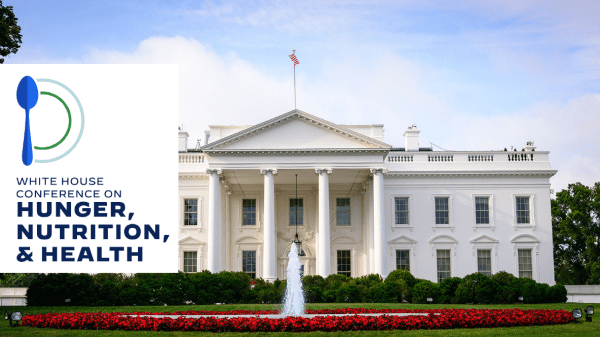Washington, Nov. 22, 2022 – The U.S. Department of Agriculture (USDA) today announced an investment of $59.4 million to support the Gus Schumacher Nutrition Incentive Program’s (GusNIP) Produce Prescription and Nutrition Incentive programs designed to encourage families and individuals to eat more healthfully by increasing access to fresh fruits and vegetables.
This investment delivers on a commitment made in the Biden-Harris Administration’s National Strategy on Hunger, Nutrition, and Health to improve access to healthy and affordable food.
Dr. Chavonda Jacobs-Young, USDA Chief Scientist and Under Secretary for Research, Education and Economics, visited the Takoma Park Silver Spring (TPSS) Co-op in Takoma Park, Maryland.
Crossroads Community Food Network, in partnership with TPSS is receiving funding under this program to launch “Year-Round Fresh Checks” to expand access to affordable fresh fruits and vegetables in the Takoma/Langley Crossroads community, a primarily immigrant neighborhood just outside Washington, D.C.
Over the course of the project, it is anticipated that 3,000 Supplemental Nutrition Assistance Program (SNAP) users will spend $450,000, which will be matched with $450,000 in incentives ($250,000 from federal funds and $200,000 from state and local matching dollars).
“Partners such as Crossroads Community Food Network, Inc., are invaluable for USDA’s nutrition security efforts,” said Jacobs-Young. “By understanding the lived experiences of their community, they help deliver USDA programs into the hands of the people who need them most.”
GusNIP programs strive to improve dietary health through increased consumption of fresh produce, improve individual and household food security, and reduce health care use and associated costs.
GusNIP Nutrition Incentive programs provide incentives at the point of purchase among income-eligible consumers participating in USDA’s SNAP and income-eligible consumers participating in other USDA nutrition assistance programs. Produce Prescriptions leverage medical assistance programs to provide “prescriptions” from a health care provider for fresh fruits and vegetables.
“Since its creation in 2019, GusNIP projects have increased access to healthy foods, and this investment serves to ensure that even more consumers can provide fresh, locally-grown fruits and vegetables for their families,” said Dr. Dionne Toombs, Acting Director of the USDA National Institute of Food and Agriculture (NIFA), the entity administering the awards. “In fact, as a result of additional funding provided through the American Rescue Plan Act, NIFA is expanding our reach to many first-time program applicants from underrepresented communities nationwide.”
Forty-three awards make up a $20.7 million Produce Prescription Program investment through USDA’s American Rescue Plan funding for the GusNIP program. Among the 43 FY22 Produce Prescription Program proposals awarded, 95% are first-time applicants to the GusNIP Produce Prescription Program, and 60% are new entries to NIFA overall. In addition, $38.7 million will support eight GusNIP Nutrition Incentive projects.
In addition to Crossroads Community Food Network, Inc., examples of projects receiving funding include:
• The Keya Foundation, Inc., in Timber Lake, South Dakota’s Produce Prescription Program will serve the Cheyenne River Sioux Tribe. The project will address a pressing need in American Indian communities to increase fruit and vegetable consumption and promote optimal cardio-metabolic health for families with school-aged children.
• Kahuku Medical Center in Kahuku, Hawaii, aims to fill the gap in accessibility and affordability of nutritious, locally grown fruits and vegetables for low-income individuals at risk for, or diagnosed with, a nutrition-related chronic condition using a collaborative approach to improve health outcomes among those at greatest risk, while expanding local food producers’ economic opportunities and agricultural infrastructure.
• The Farmers Market Fund in Portland, Oregon, will expand its Double up Food Bucks program to more outlets, enabling SNAP participants to increase their purchases of local fruits and vegetables. Participants at 80 farmers markets, 10 farm stands, 45 grocery stores and 40 Community Supported Agriculture models in 34 of Oregon’s 36 counties will receive a dollar-for-dollar incentive at the point of purchase in 2023 and 2024.
By bringing together stakeholders from various parts of the food and health care systems, GusNIP projects help foster understanding to improve the health and nutrition status of participating households, facilitate growth in underrepresented communities, and collect and aggregate data to identify and improve best practices on a broad scale.
The Biden-Harris Administration’s National Strategy provides a roadmap of actions the federal government will take to end hunger and reduce diet-related diseases by 2030 – all while reducing disparities. The National Strategy was released in conjunction with the first White House Conference on Hunger, Nutrition and Health in over 50 years, hosted by President Biden on September 28, 2022.



